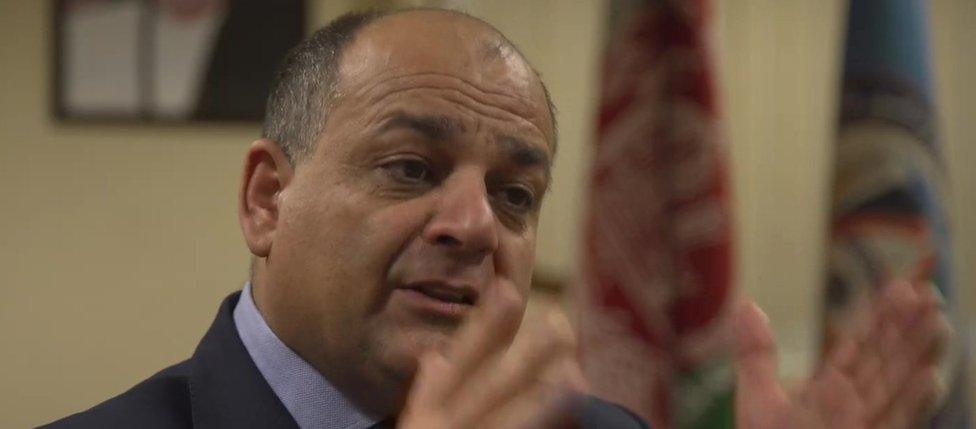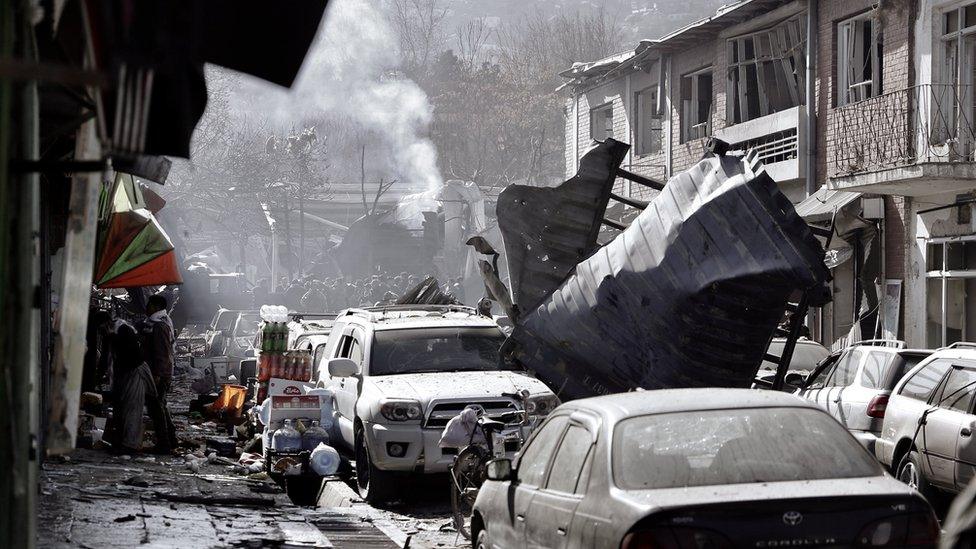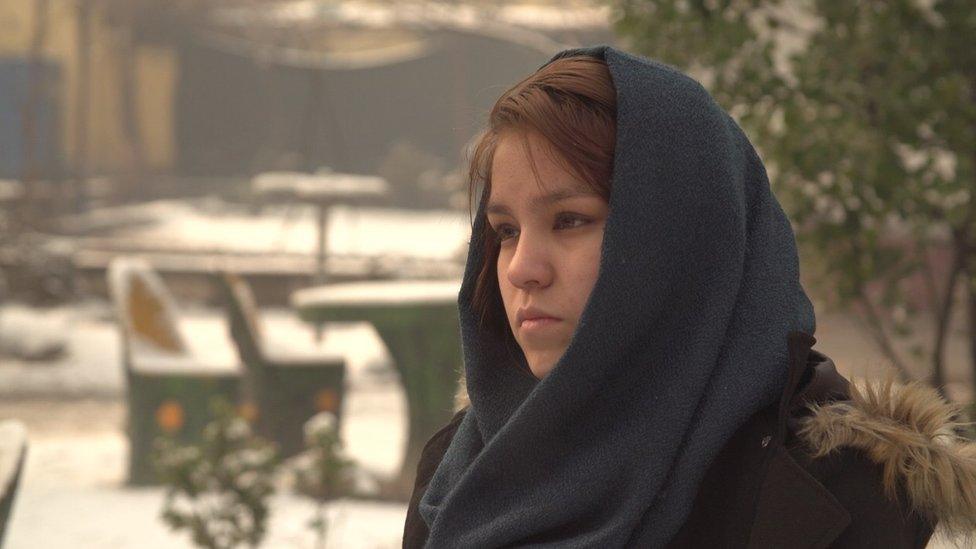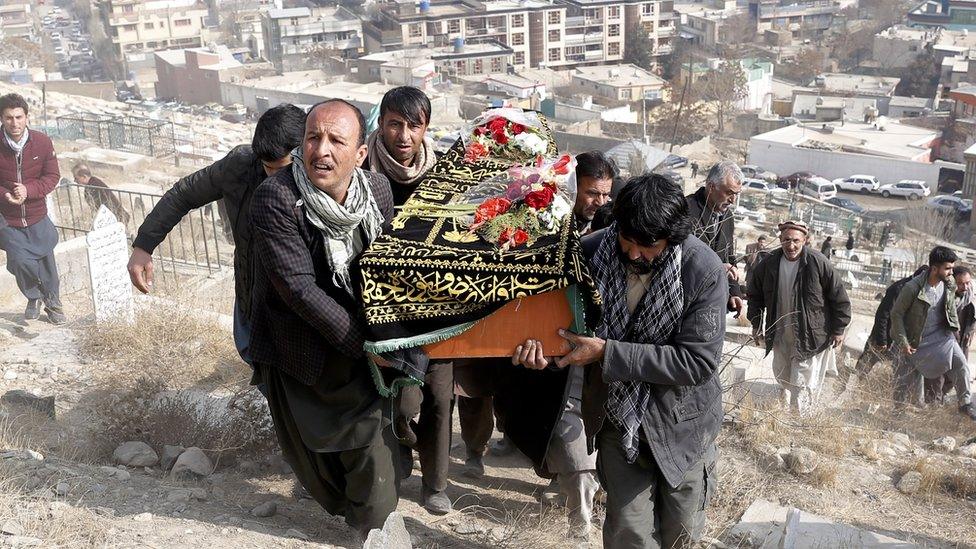Afghan attacks 'want to spark uprising'
- Published
'IS preach they are the real Muslims - not the Taliban'
Militants are targeting civilians in Kabul hoping chaos will spark an uprising, Afghanistan's interior minister has told the BBC.
In the past two weeks four major attacks - two by the Taliban and two by the Islamic State group - have killed a total of 130 people across the country.
Interior Minister Wais Barmak says the two groups share the same aim - "to provoke people against the government".
But a jailed ex-IS fighter told the BBC that the two had distinct approaches.
"For the Taliban if someone from the government repents he should be forgiven. But IS say he should be killed," said the man, to whom the BBC was given rare access, with members of the Afghan intelligence agencies present during the interview.
"IS preaches that only they are real Muslims, not the Taliban", and "does not believe in mercy", the prisoner, who did not want to be identified, added.

Afghanistan's interior minister argues that there is no tangible difference between IS and the Taliban
While the Taliban control far more territory across Afghanistan than Islamic State, IS has been more focused on attacking Kabul - carrying out at least 14 major attacks in in the city over 2017, significantly more than the Taliban.

Recent major attacks in Afghanistan
20 January: Taliban gunmen kill at least 22 people at a major Kabul hotel
24 January: IS suicide attackers kill six people in an assault on a Save the Children office in the eastern city of Jalalabad
27 January: Taliban militants drive an ambulance laden with explosives into a Kabul secure zone, killing at least 100
29 January: IS fighters kill 11 soldiers in an assault on an army post in Kabul

Some analysts believe that the recent spate of attacks by the Taliban in Kabul represent a competition between the two groups for international notoriety.
But Afghan officials often say that there is no tangible difference between the Taliban and IS.
The two are targeting civilians "to provoke people against the government, so the government will fall apart… and there will be chaos," the interior minister told the BBC.
They both "come from the same source," alleging that Pakistan provides safe havens to both groups.
Many Afghans have expressed anger at the government's failure to prevent the attacks.

The deadliest recent attack killed at least 100 people in Kabul and was claimed by the Taliban
The former IS member blamed the worst violence on Pakistani members of the group, many of whom he said came from the Orakzai tribe in north-western Pakistan. He also said there were Chechen and Arab members of IS too.
He was open about having been an active participant in the group's violence in the east of Afghanistan. "I have taken part in executing people. We used to make people sit down on top of bombs and blow them up," he said.
This was one of IS's most notorious methods of executing prisoners. The group released a propaganda video shortly after it became active in Afghanistan in 2015 showing a number of blindfolded men being forced to kneel down on top of explosives, which were then detonated.
The attack sends a huge plume of black smoke into the sky
Many IS fighters in Afghanistan were former Taliban. The prisoner said he was among many in his unit who had been forced to switch allegiance.
He said he had received one month's training by IS in northern Pakistan, but did not mention that the group had any ties to Pakistani officials. He said IS would dismiss the Taliban as "Pakistani agents".
Many of the IS attacks in Kabul have targeted the capital's Shia minority, whom IS militants hold to be heretics.
Journalist Syed Azizullah survived a suicide bombing in December on a cultural centre that killed over 40 people.
"In the past, Shias living in the countryside used to come to Kabul because it was safer," he told the BBC. "Now my relatives in the outskirts tell me to leave Kabul because it's become so dangerous here."
- Published2 February 2018

- Published31 January 2018
